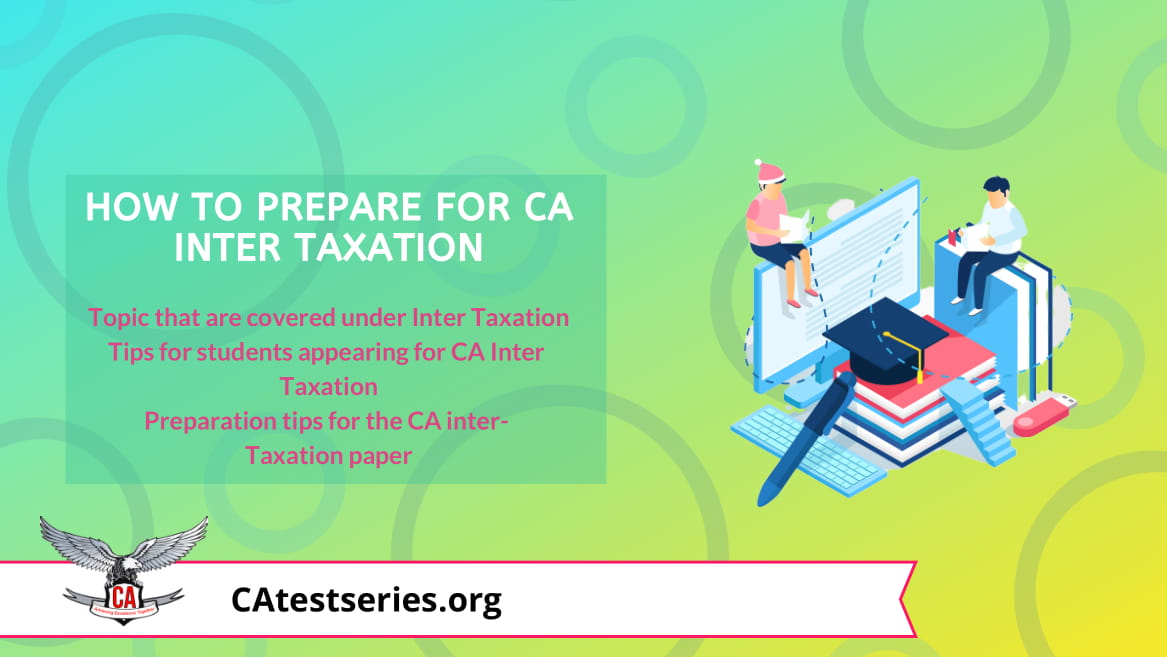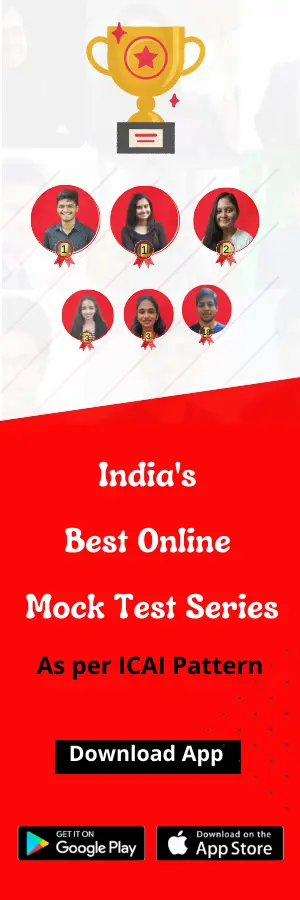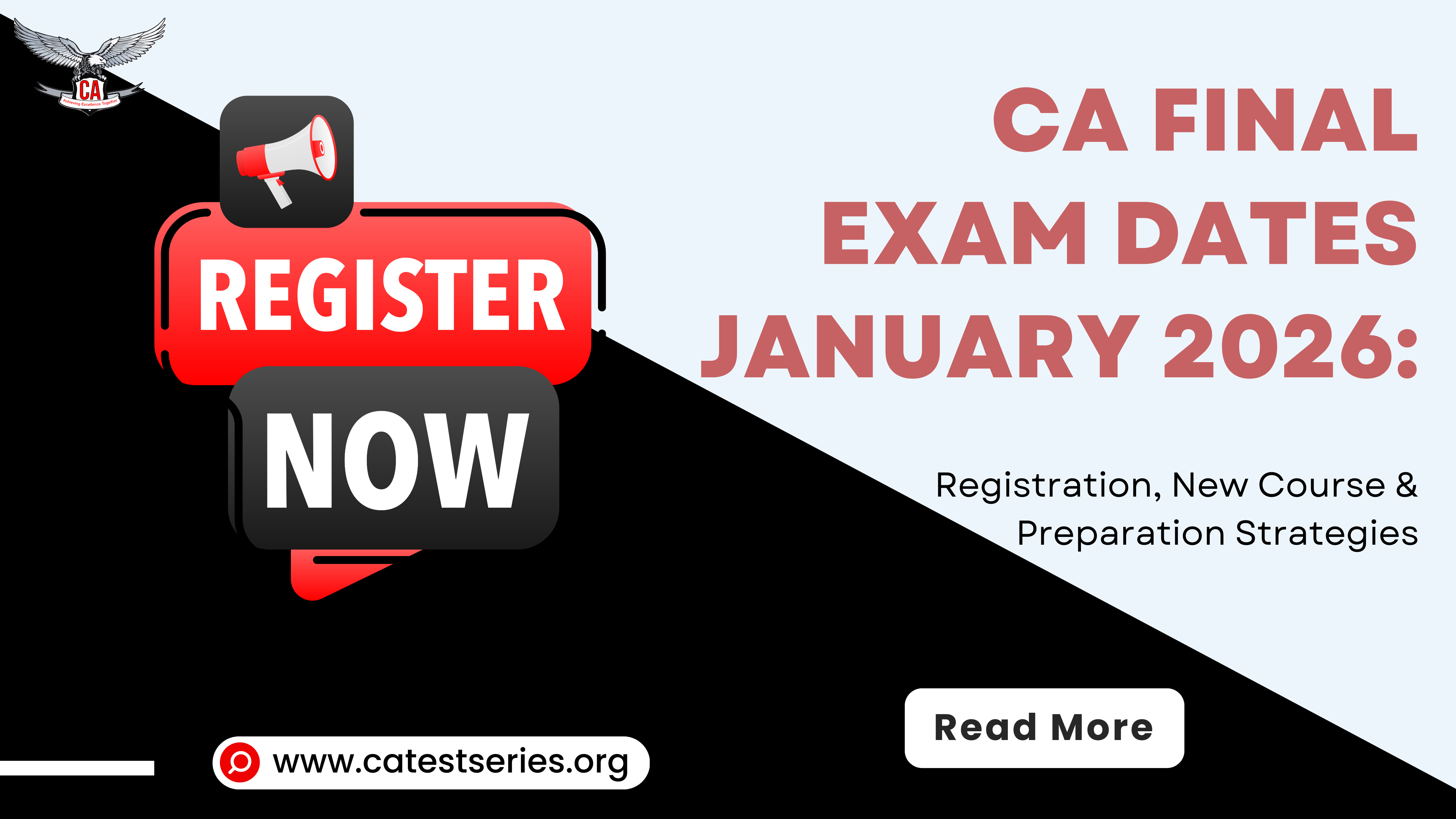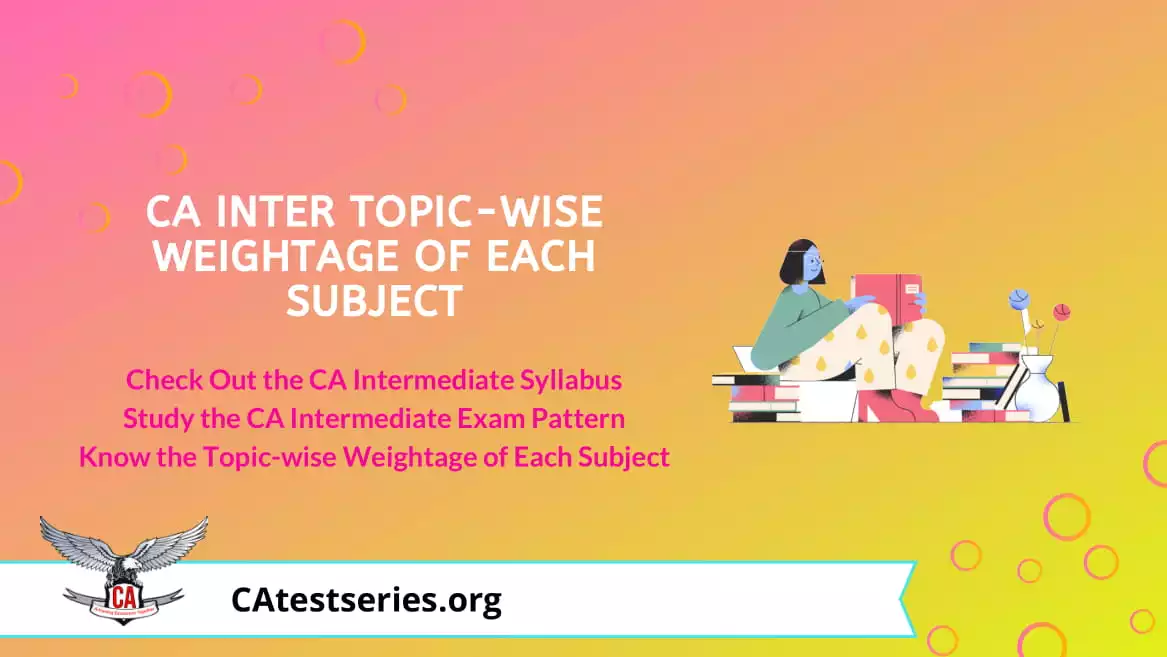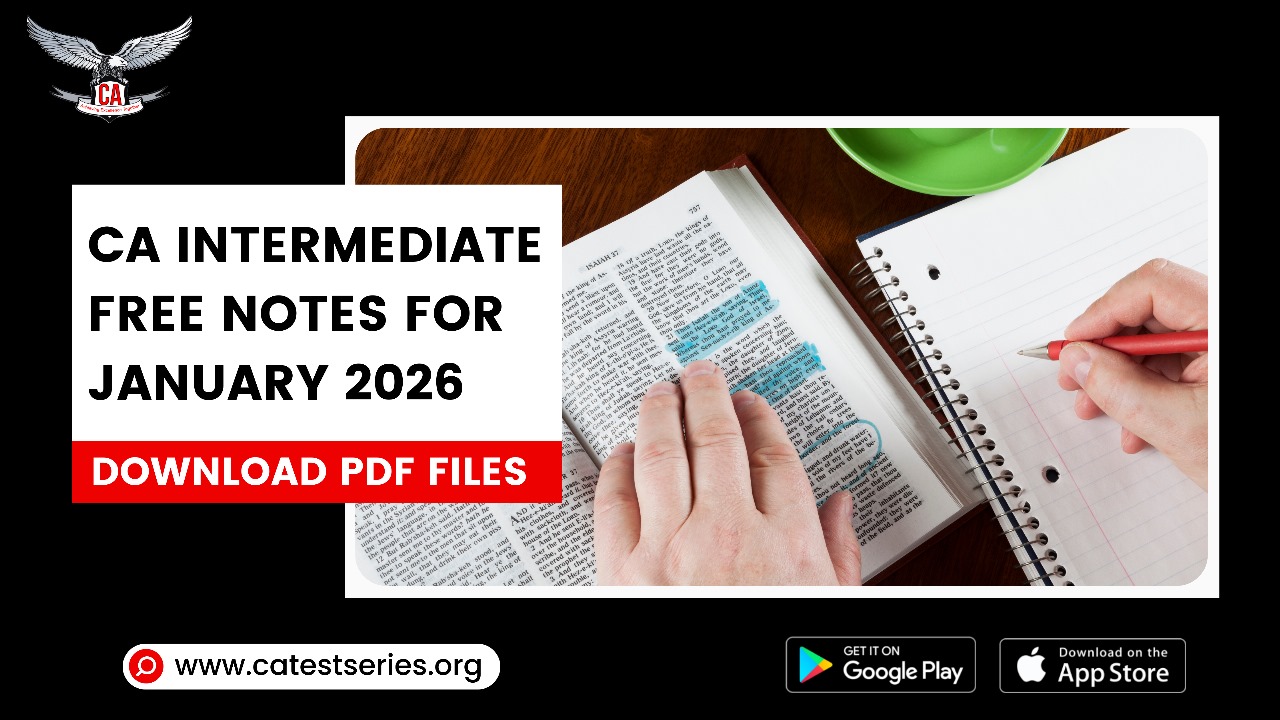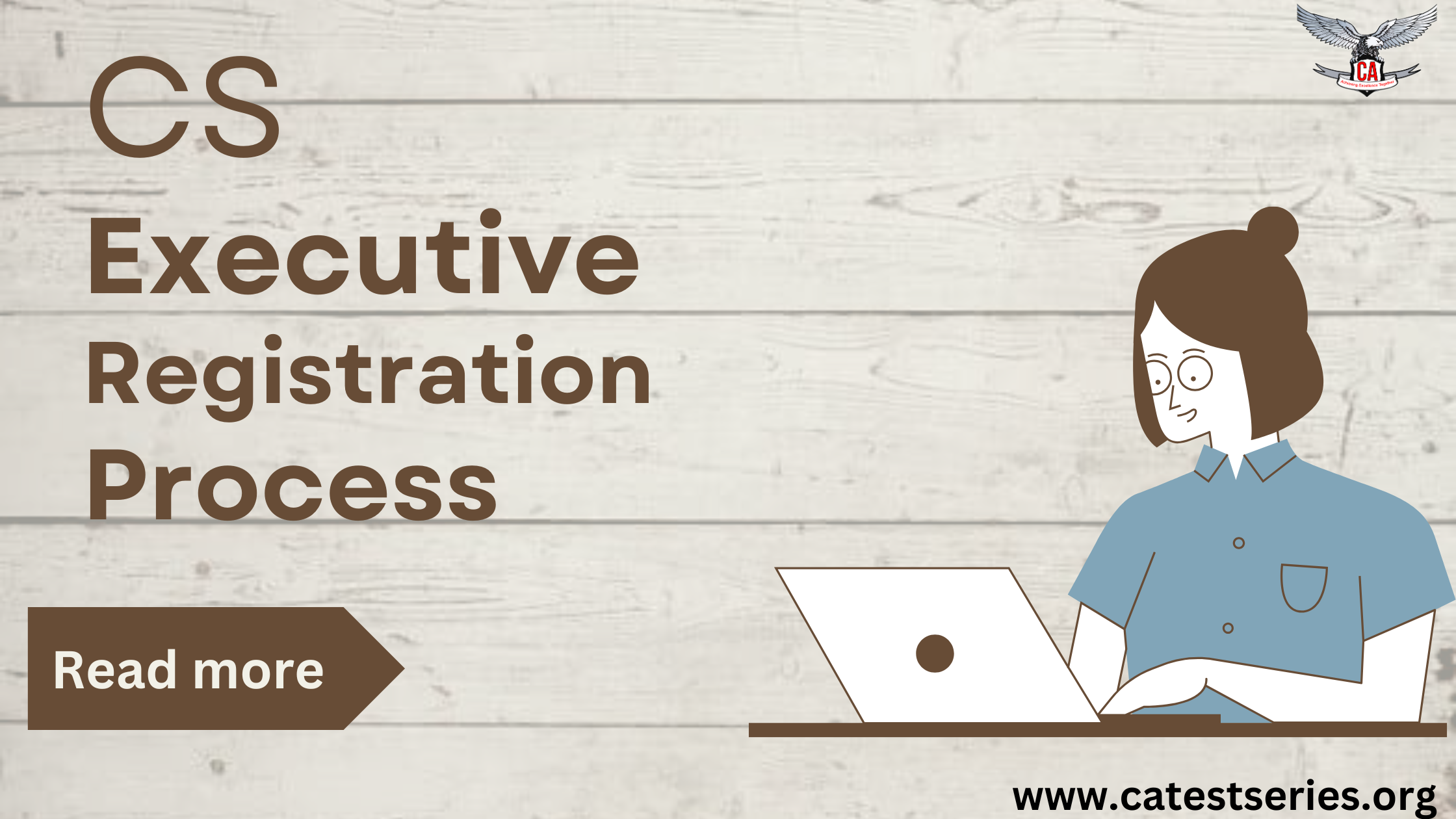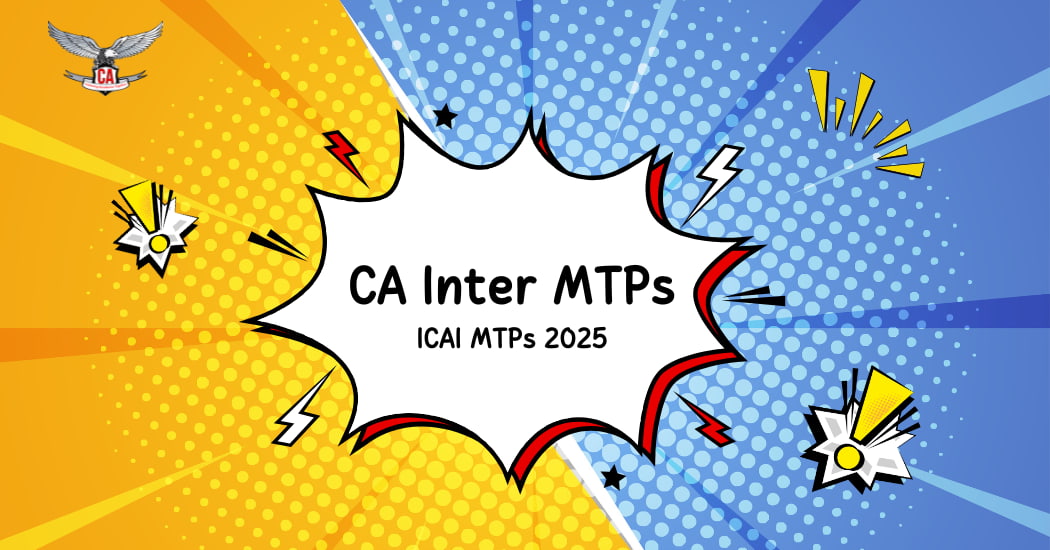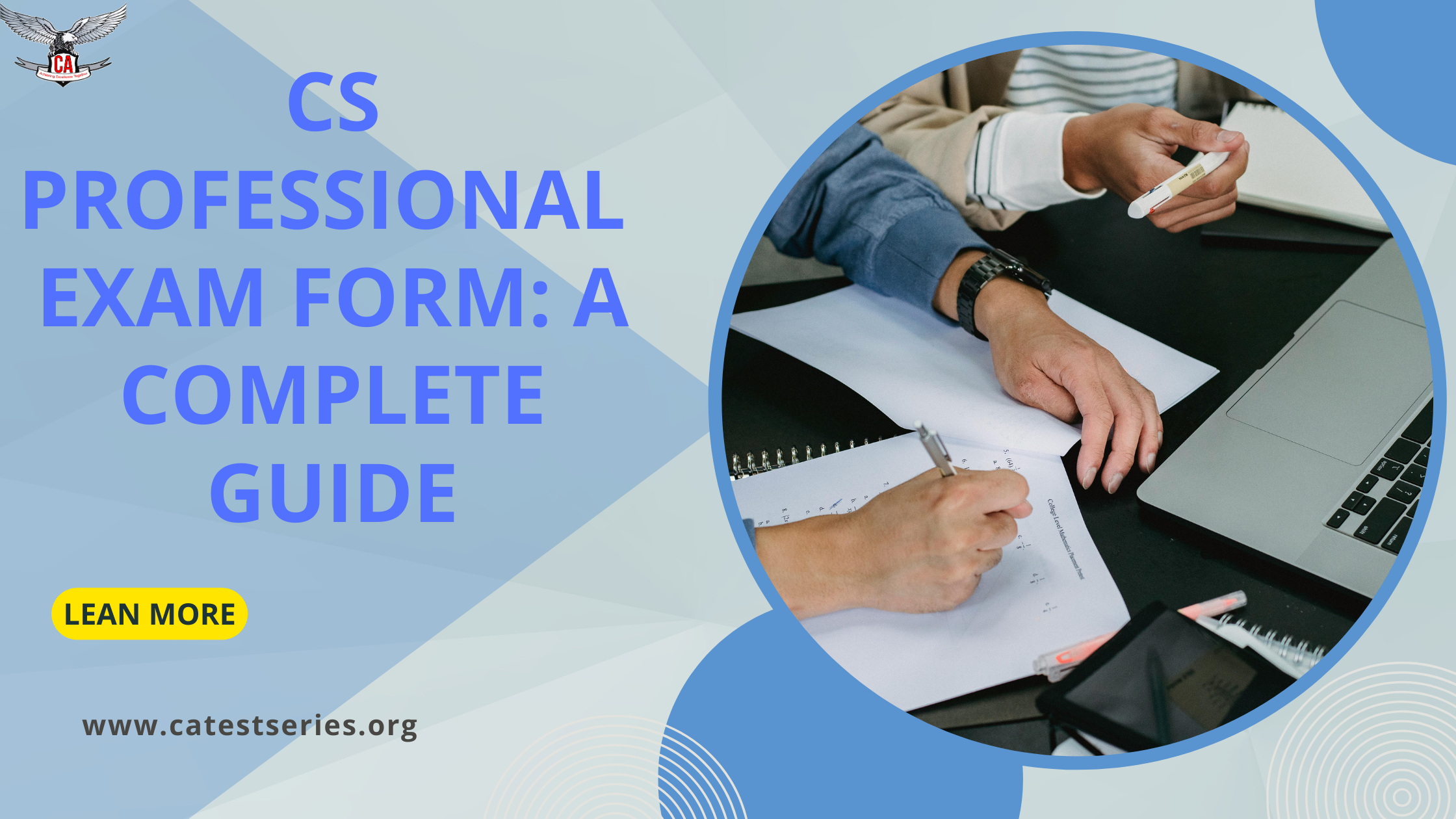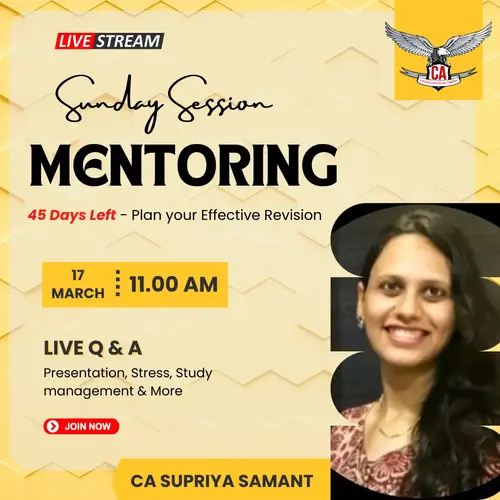How to prepare for CA Inter Taxation Systematically | Strategy with ABC Analysis
Life takes a different turn after passing the school. No matter which professional course you choose; theres a lot of competition everywhere. In order to crack these competitive exams with flying colors; one has to prepare for them extensively and with full dedication & concentration. And if youre planning to prepare for CA i.e. Chartered Accountancy; you need to make up your mind for the intensive study planning and proper approach to the study material available.
Tax has always been the most scoring subject; you just need to study properly. Taxation has two sections:
- Direct Tax, also known as Income tax.
- Indirect Tax, also known as GST and Customs.
How to study Tax
Whether it is Inter or Final, Tax is always a scoring subject until and unless you are not proper with your studies. You can score high in this subject but there is a need for proper planning and guidance to score such.
Divide the subject into sub-topics and allocate time to each sub-topic. – This will help you gauge your progress vis-a-vis the scoring weightage for each sub-topic.
Begin with Direct Taxes – When you begin to study CA Intermediate Taxation, cover the basic five heads of income as the subject is vast. Heres a suggested flow: Income from house property → Capital Gains → Income from other sources → Income from business/profession → Income from Salary
Move to Indirect Taxes chapters like ITC, supply, time of supply value of supply Exemptions, Charge of GST, and tax invoice.
Pay attention to peripheral topics as well –Topics like Residential status, Provisions related to filing returns, TDS, Advance Tax, etc. are quite crucial and cannot be missed
Weightage and No. of Revision
Chapter No. | Chapter Name | Marks weightage | No of revision |
| Sec-A: Income-tax Law |
|
| |
| Basic Concepts | 5 | 1 | |
| Residence and Scope of Total Income | 8 | 1 | |
| Incomes which do not form part of Total Income | 6 | 2 | |
Chapter 4: Heads of Income
| 12 | 2-3 | |
| Income of Other Persons included in Assessees Total Income | 12 | 2-3 | |
| Aggregation of Income, Set-off and Carry Forward of Losses | 10 | 3 | |
| Deductions from Gross Total Income | 8 | 3 | |
| Computation of Total Income and Tax Payable | 12 | 3 | |
| Advance Tax, Tax Deduction at Source and Introduction to Tax Collection at Source | 6 | 2 | |
| Provisions for filing Return of Income and Self-assessment | 9 | 2-3 | |
| Sec-B: Indirect Taxes |
|
| |
| GST in India - An Introduction | 2 | 1 | |
| Supply under GST | 10 | 2 | |
| Charge of GST | 5 | 2 | |
| Exemptions from GST | 12 | 3 | |
Time and Value of Supply
| 10 | 3 | |
| Input Tax Credit | 10 | 4-5 | |
| Registration | 8 | 2 | |
| Tax Invoice: Credit and Debit Notes; E-way Bill | 12 | 2 | |
| Payment of Tax | 10 | 2 | |
| Returns | 6 | 2 |
Study Plan/ ABC Analysis
Small and Easy | Fair | Medium | Difficult and Need more practice |
Basic Concepts, Residence and Scope of Total Income, Incomes which do not form part of Total Income, Aggregation of Income, Set-off and Carry Forward of Losses, Computation of Total Income and Tax Payable | Advance Tax, Tax Deduction at Source and Introduction to Tax Collection at Source, Provisions for filing Return of Income and Self-assessment, Supply under GST, Charge of GST, and Returns | Deductions from Gross Total Income and Salary, House property, and income from other sources, Time and Value of Supply and also Exemptions from GST
| Input Tax Credit, Income of Other Persons included in Assessees Total Income, PGBP and Capital Gain, |
2 times Revision only
Take 7 to 8 days to Revise
| 3 times Revision
Take 5 days and practice, focus more on questions | 3 times Revision
8 days, solve maximum questions, 80% focus on solving questions only | 2 Times Revision
Study 4 to 6 adjustments per day, Cover all in 6 to 8 days |
Also Check: Sec 143(3) Audit Report Amendments For Nov 2021
From which chapter to start preparing
Start with Five heads of income Dont spend much time on theory, quickly revise from your class notes and then start attempting problems, most of your concepts will be cleared through solving problems. and Move to Indirect Taxes chapters like ITC, supply, time of supply value of supply Exemptions, Charge of GST, and tax invoice.
Other Peripheral topics can be easily covered in last 15 days. For this part, icai questions are more than sufficient.
More scoring part
The most important part of the Capital Gain is Exemption starting from Section 54.
Thoroughly understand LTCG, STCG, cost of acquisition, improvement and also practice Indexation. Thereafter cover Sec 50C.
Before starting the question, it is very important to check the status of assessee i.e. whether it is firm or company or Individual or HUF as provisions as well as tax rates are different for them. Due dates are also different.
Most important section under Deduction are 80C, 80CCD, 80DD, 80EE, 80TTA, 80TTB
Important sections under TDS 194DA, 194-IA, 201 TCS entire chapter is important
Dont forget to Devote special focus to amendments or new additions. You may find most of the questions in exams based on latest case laws and Amendments. So it is very important to prepare latest case laws.
Also Read: How to prepare for CA Inter Taxation Systematically | Strategy with ABC Analysis
GST
In ITC important topics
• Provisional ITC vs Final ITC
Any tax period – return filed claiming credit – this ITC is allowed provisionally asper Sec 41
Post mataching as per provisions of Sec 42, it becomes final
• Time limit for availment of ITC
• ITC admissibility in case of Bill to .. Ship to ….transactions
• ITC reversals if supplier remains unpaid for more than 180 days
• Blocked Credit
• ITC apportionment procedure
•Special Credits
Time of Supply
• Sec 12: ToS of Goods
o 12(2): ToS in case of FCM liability
Sec 148 (Spl Procedure) – Advances will not attract GST
o 12(3): ToS in case of RCM liability
• Sec 13: ToS of Services
o 13(2): ToS in case of FCM liability
o 13(3): ToS in case of RCM liability
• ToS in case of Vouchers – Sec 12(4) + 13(4)
Manner of distribution of ITC
Full length practical question
Dont forget to learn provisions because along with treatments, you are required to write relevant provision also for scoring good marks. Many students lack this point.
Past trending Chapters
Topics | Questions in Past exams | |
| ||
| Income of Other Persons included in Assessees Total Income | 10 | 6 |
| Salaries | 10 | 6 |
| House Property |
| 7 |
| PGBP | 7 | 8 |
| Capital Gain | 10 | 6 |
| Deduction | 5 | 4 |
| Computation of total Income and tax liability of Individuals | 10 | 10 |
| ITC | 8 | 8 |
| Time and Value of Supply | 10 | 10 |
| Charge of GST | 8 | 3 |
| Supply of GST | 5 | 5 |
| Exemption From GST | 3 | 3 |
| Returns | 5 | 4 |
Payment of Tax | 5 | 1.5 |
Which questions to attempt first
It was experienced in the past that IDT part is most scoring, mostly students score well in this part and its easy too compared to other part. In first 20 minutes, try to attempt all the mcqs which you know very well then come to IDT section and attempt all questions. After 60 to 70 minutes, go to DT section and attempt questions from small chapters first. In last 1 hour attempt, questions from 5 heads, total income or other lengthy questions. In this manner, you can cover maximum portion.
Maintain your word limit according to the marks allotted to each question. Be specific and brief for short answer questions. Evaluators always prefer correctness and specificity
In IDT Always use proper format like
In the first para, Write the provision from the Act, and quote the section number or reference to the act.
In Second Para, Explain the Provision written in First Para.
In Third, Explain how your answer is related to the question given.
In Fourth Para, give a conclusion to the question.
Important Questions/Amendments
- GST valuation, Exemptions
- PGBP and CG.
- Amendments applicable for that exam
- TDS and Set off of loss.
- ITC
- Time and value of supply
- Exemption and charge of GST
Amendments for this attempt are covered separately
Common Mistakes / Tips
- While doing the direct tax preparation, solve a few questions immediately after reading a particular topic to improve retention.
- After practicing problems pertaining to different heads, attempting multiple problems related to total income will help you gain confidence on the overall application of theory in Taxation.
- During preparation, donot make notes or refer many notes, you may fall in confusion. While reading through the material and subsequently solving sums, you may note down tricky parts that you need to remember and revise at the end.
- Any new amendments, such as those introduced in Capital Gains, etc. are important and need to be known by every CA aspirant attempting the CA intermediate taxation paper.
- Go through the illustrations provided in the study material. They can help you give an edge over many aspirants.
- Although writing section number give edge over other students but more than 90% students donot write section number so no need to worry about it, if you are not able to write section numbers.
- And in Taxation Writing correct answer is not sufficient to gain marks in CA papers. Besides writing the correct answer you have to present it properly. The answer must be given in a sequence as demanded by ICAI and you should also support your answer with provision, section or case law if possible. At last, end your answer with the appropriate conclusion.
- Dont write irrelevant answers as this is not a BCOM exam. Every treatment should be according to the provisions.
- Keep in mind that Working Notes carry marks. Always mention brief working notes / assumptions. Its better to mention working notes separately under the heading Working Notes. Dont include Working Notes in the Main Answer.
- In heading of the calculation, must mention about the relevant assessment year and name of the assesses.
To prepare for CA Taxation; first and foremost step is to select the correct study material instead of going with some other teachers notes. You can also practice with Ca mock test series available online. Stick to one material rather than jumping to one or another materials and revise it two to three times before the final attempt.
5 heads of Income:
As per section 14 of the Income Tax Act, for the purpose of tax and computation of total income. Although, only one tax is calculated under various heads, but there are different rules of computation of income under each head and income has to be computed under the head of income after applying the rules applicable to that head only.
- Salaries: An income can be taxed under this head if theres a relationship between the payer and the payee of an employer and employee. If theres no such relationship between them, then the income would not be deemed to be income from salary. And if this the case; the income is not assessable under this head.
This is the most lengthy and important chapter in Inter level. It will help boost your confidence and will motivate you to cover the entire syllabus. Keep practicing with the ca test series and it will be really beneficial for you.
- House Property: Tax on income from house Property is the tax on the rental income being earned from a house Property. However if the property is not rented out, tax will be levied on the expected rent that would have been received if the property was rented out. House property tax is the only tax which is charged on a notional basis. And this head doesnt only covers the rented house Property but also the commercial and all other types of properties. Many deductions are also applicable in this head like standard deduction, deduction for municipal taxes paid and deduction for interest on home loan is also allowed. TDS on rent 10% is also to be deducted in case the value of rent is more than the specified limit. Service tax on rent is also to be levied in some special cases.
Start with this head as it is short and easy to cover and important too because most of the time questions are combined with house property and other heads.
- Profits and Gains of Business or Profession: Any income earned from a business, trade, commerce, manufacture or profession is to be chargeable under this head after deducting the specified expenses.
This one needs proper attention and dedication and most importantly, you need to understand the concepts in detail. So whenever you start with this chapter; be focused, calm and patient.
- Capital Gains: Any income earned from the transfer of a capital asset effected in the financial year shall be chargeable to income tax under this head. And the income is deemed to be the income of the year in which the transfer took place unless such capital gain is exempt under sections 54, 54B, 54D, 54EC, 54ED, 54F, 54G or 54GA.
While preparing for this chapter; make short notes to get the proper detailed understanding and it will be easier for you to do the revision. Also you can revise with the help of ca inter test series or mock test icai.
- Other Sources: Any income which is not taxable under the other heads, it falls under this head provided that income is not exempt from the computation of total income.
It is not as lengthy as the other heads but do not avoid or skip this head. Try and practice mock test series online or any other ca final test series to boost your confidence.
The total income falling under these heads of income is added and then disclosed in the Income Tax Return. The tax on the total income (taxable) after allowing all the deductions is then calculated as the Income Tax Slab. There are several incomes which are tax free and there are incomes from which deductions are also allowed which help a taxpayer in reducing the tax liability substantially.
To make a strong grip on this subject you need to keep revising the heads by ca mock test series or icai mock test series. You dont have to learn them word by word but make sure you understand them properly so that you can explain it clearly in the finals. Moreover it is the most interesting subject and getting distracted while studying this is not an option; instead it can bring you study mood back.
Never forgot to Attempt Test Papers before your exams
Motivation: “In order to succeed, your desire for success should be greater than your fear of failure”.
Ok Thanks, Best of luck

